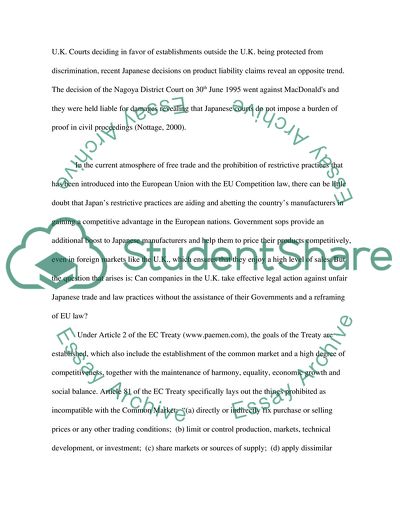Cite this document
(“Product Liability Claims in the UK Essay Example | Topics and Well Written Essays - 4500 words”, n.d.)
Product Liability Claims in the UK Essay Example | Topics and Well Written Essays - 4500 words. Retrieved from https://studentshare.org/law/1534999-please-note-i-have-a-question-in-international-commercial-law
Product Liability Claims in the UK Essay Example | Topics and Well Written Essays - 4500 words. Retrieved from https://studentshare.org/law/1534999-please-note-i-have-a-question-in-international-commercial-law
(Product Liability Claims in the UK Essay Example | Topics and Well Written Essays - 4500 Words)
Product Liability Claims in the UK Essay Example | Topics and Well Written Essays - 4500 Words. https://studentshare.org/law/1534999-please-note-i-have-a-question-in-international-commercial-law.
Product Liability Claims in the UK Essay Example | Topics and Well Written Essays - 4500 Words. https://studentshare.org/law/1534999-please-note-i-have-a-question-in-international-commercial-law.
“Product Liability Claims in the UK Essay Example | Topics and Well Written Essays - 4500 Words”, n.d. https://studentshare.org/law/1534999-please-note-i-have-a-question-in-international-commercial-law.


